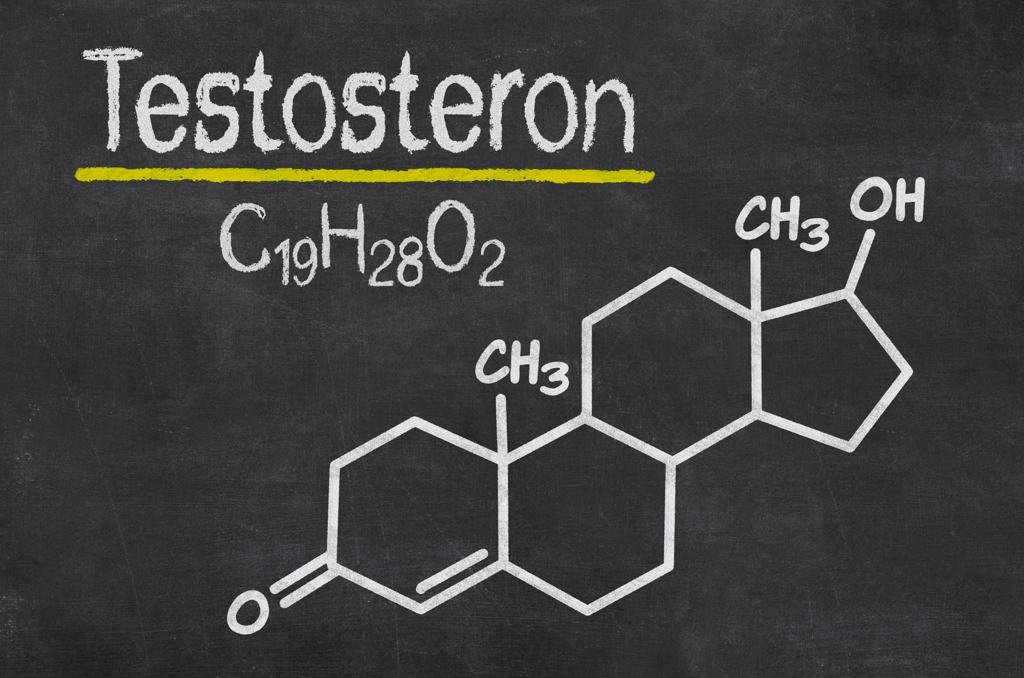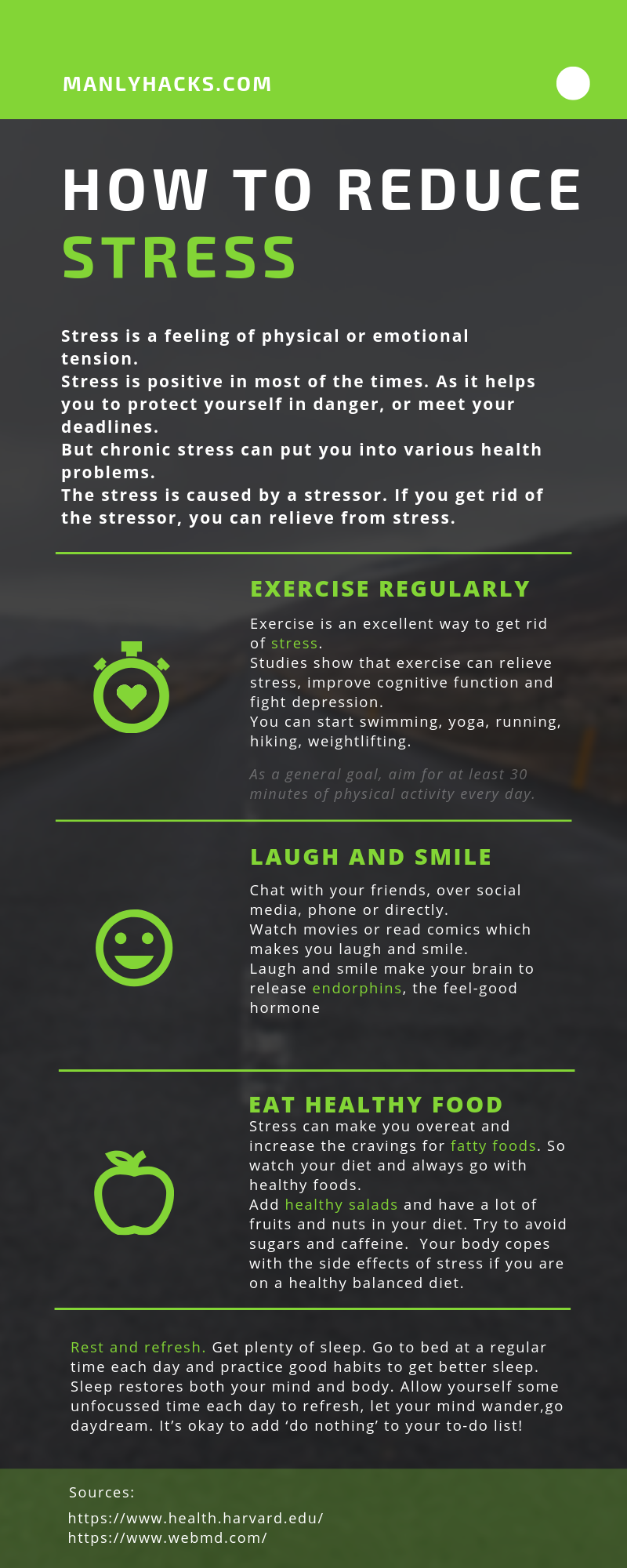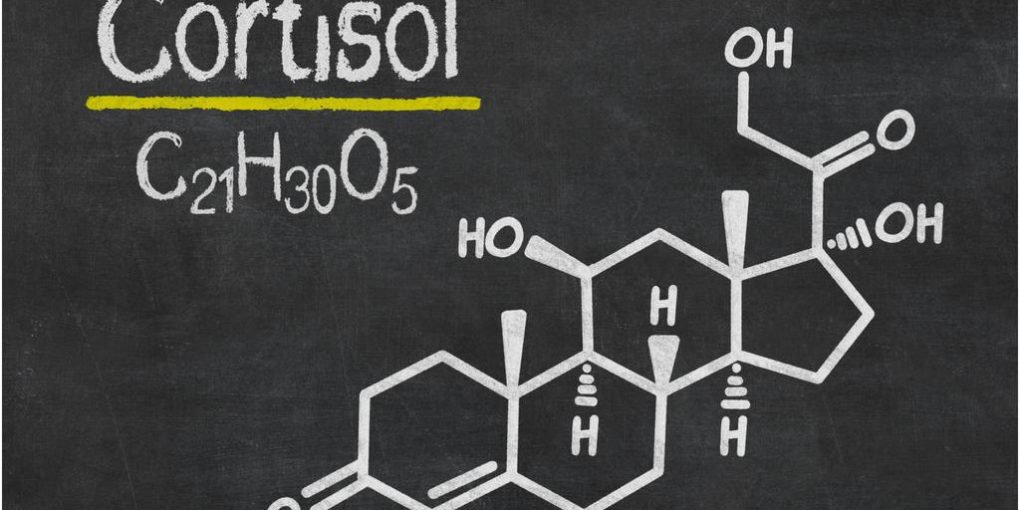Does Stress affect your testosterone levels?
Stress is a feeling of physical or emotional tension. It can be caused by anything that makes you angry and frustrated.
Is it good?
Stress is positive in most of the times. As it helps you to protect yourself in danger, or meet your deadlines.
Even while you are lifting weights in the gym, your body will be under stress. It is the result of stress that our body grows.
Stress hormones
But if it crosses the limit, the same stress can cause an adverse effect on your health.
Your body will release hormones while you are under stress. The main hormones are cortisol, and adrenaline, nor-adrenaline.

Adrenaline will increase the heart rate and prepare you for a flight or fight situation. Cortisol increases the glucose level in the bloodstream, ensuring you have enough energy to deal with the situation. These hormones help you to survive while you are in danger.
The side effects of stress
But chronic stress can put you into various health problems.
In the modern era, stress and tension at the workplace can cause an increase in cortisol levels during the day time(study1).
There is a study published in Annals of Behavioral Medicine shows that high levels of stress are associated with higher levels of cortisol hormone (study 2).
The effects of stress hormones on your testosterone

This study shows the relationship between low testosterone levels and stress hormones in endurance-trained athletes (study 3).
The elevated levels of cortisol can cause impotence and loss of libido, as the cortisol will stop/ reduce the production of testosterone (study 4).
These effects will be reversed if the stress level goes down.
The relation between stress and cortisol
Testosterone and cortisol have a negative relation. A study published in the international journal of sports medicine shows that the cortisol levels in endurance cyclists were elevated while the testosterone levels were at the lower side (study 5).
Journal of clinical endocrinology and metabolism shows that elevated cortisol levels will lower your circulating testosterone levels. High cortisol levels or hypercortisolism will suppress the testosterone production directly in the testes (study 6).
Cortisol and its impact on Gonadal functions
Another study published in psychosomatic medicine shows that the testosterone levels will be lowered under severed depression (study 7). The depressive episode of moderate to high severity can disrupt your gonadal functions.
How to relieve stress
The stress is caused by a stressor; if you get rid of the stressor, you can relieve from stress.
Exercise

Exercise is an excellent way to get rid of stress.
Studies show that exercise can relieve stress, improve cognitive function and fight depression (study 8).
You can start swimming, yoga, running, hiking, weightlifting. Thus a lot of options are there. You can join group activities like Football, Badminton, and Volleyball. You will get the benefit of exercise and socialization. Socialization is essential, and it helps to relieve stress.
Food habits

Stress can make you overeat and increase the cravings for fatty foods. So watch your diet and always go with healthy foods.
Add healthy salads and have a lot of fruits and nuts in your diet. Try to avoid sugars and caffeine. Your body copes with the side effects of stress if you are on a healthy balanced diet.
Laugh and smile.
Chat with your friends, over social media, phone or directly. Watch movies or read comics which makes you laugh and smile. Laugh and smile make your brain to release endorphins, the feel-good hormone(study 9).
If you like the video please subscribe to our channel and don't forget to like the video.

Share this Image On Your Site
Copy the code belowReference
- Melamed S, e. (2019). Chronic burnout, somatic arousal and elevated salivary cortisol levels. - PubMed - NCBI. [online] Ncbi.nlm.nih.gov. Available at: https://www.ncbi.nlm.nih.gov/pubmed/10454175 [Accessed 7 Apr. 2019].
- OUP Academic. (2019). Annals of Behavioral Medicine | Oxford Academic. [online] Available at: https://academic.oup.com/abm [Accessed 7 Apr. 2019].
- Daly, W., Seegers, C., Rubin, D., Dobridge, J. and Hackney, A. (2004). Relationship between stress hormones and testosterone with prolonged endurance exercise. European Journal of Applied Physiology, 93(4), pp.375-380.
- UT News. (2019). Stress Hormone Blocks Testosterone's Effects, Study Shows - UT News. [online] Available at: https://news.utexas.edu/2010/09/27/stress-hormone-blocks-testosterones-effects-study-shows/ [Accessed 7 Apr. 2019].
- ML, H. (2019). Relationships between testosterone, cortisol and performance in professional cyclists. - PubMed - NCBI. [online] Ncbi.nlm.nih.gov. Available at: https://www.ncbi.nlm.nih.gov/pubmed/8884416 [Accessed 7 Apr. 2019].
- CUMMING, D., QUIGLEY, M. and YEN, S. (1983). Acute Suppression of Circulating Testosterone Levels by Cortisol in Men*. The Journal of Clinical Endocrinology & Metabolism, [online] 57(3), pp.671-673. Available at: https://academic.oup.com/jcem/article-abstract/57/3/671/2675739?redirectedFrom=fulltext [Accessed 7 Apr. 2019].
- Schweiger, U., Deuschle, M., Weber, B., Korner, A., Lammers, C., Schmider, J., Gotthardt, U. and Heuser, I. (1999). Testosterone, Gonadotropin, and Cortisol Secretion in Male Patients With Major Depression. Psychosomatic Medicine, [online] 61(3), pp.292-296. Available at: https://insights.ovid.com/crossref?an=00006842-199905000-00007 [Accessed 7 Apr. 2019].
- Publishing, H. (2019). Benefits of exercise – reduces stress, anxiety, and helps fight depression, from Harvard Men's Health Watch - Harvard Health. [online] Harvard Health. Available at: https://www.health.harvard.edu/press_releases/benefits-of-exercisereduces-stress-anxiety-and-helps-fight-depression [Accessed 7 Apr. 2019].
- Cold, F., Health, E. and Disease, H. (2019). Relaxation Techniques to Reduce Stress. [online] WebMD. Available at: https://www.webmd.com/balance/guide/blissing-out-10-relaxation-techniques-reduce-stress-spot#1 [Accessed 7 Apr. 2019].

